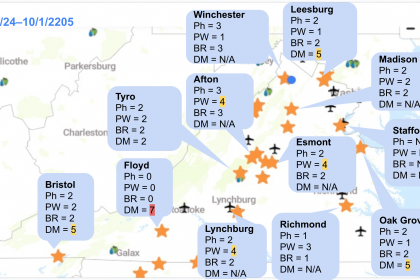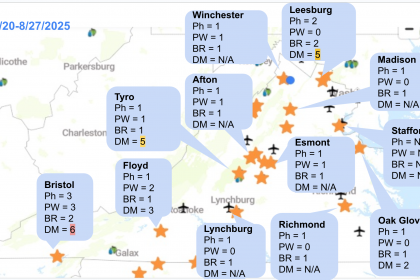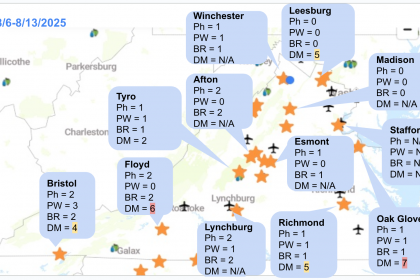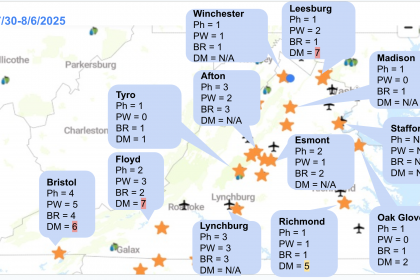Here’s a snapshot from the last week, showing the number of days with the risk of each disease: Ph = Phomopsis, PW = Powdery mildew, BR = Black rot, and DM = Downy mildew. (Note: Floyd and Charles City stations are not sending data right now. Floyd station should be back soon.) This information was made available through Wine Board-funded the Sentinel Vineyard project.
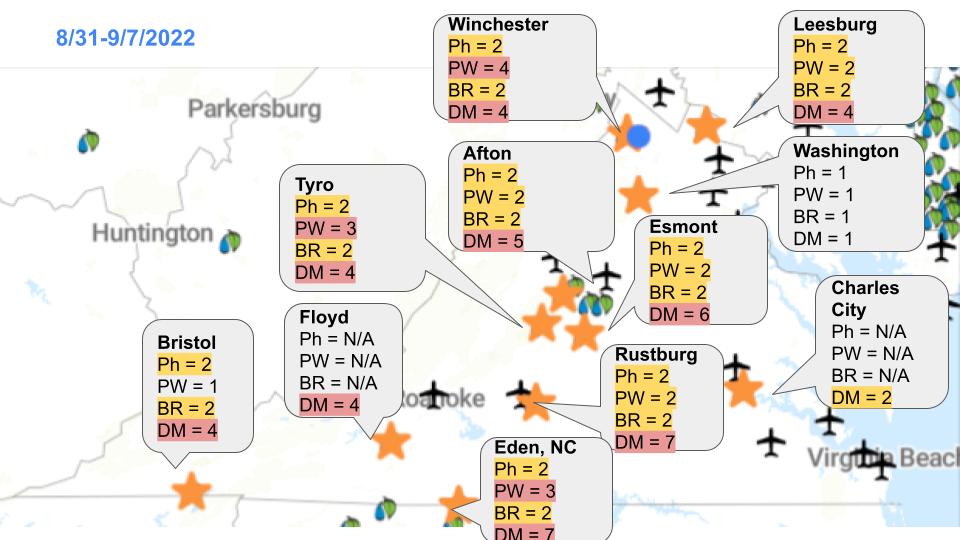
The image above is just a summary of the past 7 days. Please visit https://newa.cornell.edu/ to obtain more detailed information. You can check daily weather data as well as disease and insect pest model results including forecasted risks. We paid the annual fee so that growers in Virginia can freely access NEWA.
I thought we had a bit of a break from the rain, but the number of days with downy mildew risk was still high at many weather stations in the past 7 days. As nighttime temperature drops, the relative humidity increases to create a condition for the downy mildew pathogen to produce spores. Sometimes heavy dew (= moisture running off from leaves) can be enough to spread the downy mildew pathogen.
At this point, we are looking at potential harvest dates for many cultivars. Make sure to talk to your winemaker for fungicide selection. Our focus will be on powdery and downy mildew plus Botrytis and late-season rots. You can find specific material information in this post (mid-season disease management), this post (VVA presentation), or a recent reminder.
The list of short PHI (< 7-day) materials is here (pdf format).
The risk information above is just output from the model, and the spray decision needs to be based not only on the weather condition but on the cultivar and history of the disease(s) in your vineyard. For example, if your vineyards have been clean and vines are protected from the previous application of fungicides, there is no need to make “rescue” sprays. On the other hand, if you know you have seen a concerning level of downy mildew in the past, your spray was more than 10 days ago and/or if you saw more than 2 inches of rain (as we are experiencing right now in northern VA), it is probably a good idea to mix a phosphonate (i.e., a “phos acid”, such as Prophyt or Phostrol) for downy mildew in your next spray.
If you are in an unfortunate situation where downy mildew was well established (i.e., you can see it everywhere), please use captan or copper to keep your healthy leaves protected. Clusters are resistant to new infection at this point, but if you do not protect leaves, downy mildew can defoliate leaves. Please do not use Revus, Ranman, or Ridomil which are prone to develop fungicide resistance.
